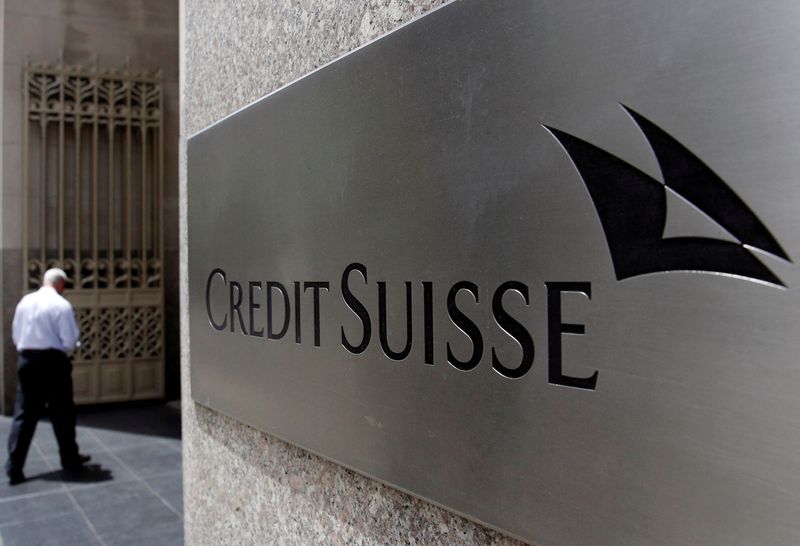ZURICH (Reuters) - S&P Global (NYSE:SPGI) Ratings has downgraded Credit Suisse Group's long-term credit rating to one step above junk bond status, citing "material execution risks" in the Swiss bank's efforts to get back on solid ground after a series of scandals and losses.
Other ratings agencies also questioned the restructuring plan unveiled last week that envisions raising new capital, cutting thousands of jobs and shifting the group's focus even further from investment banking in favour of wealth management.
The bank's restructuring steps are more decisive than before and have the potential to make Credit Suisse simpler, more stable, and less risky, S&P said in a note dated Nov. 1.
"However, we see significant execution risks given the complexity of the multi-year programme and the difficult economic and market environment, which could adversely affect the speed and costs of the run-down of non-core assets," it added.
It said a feeble operating performance in the third quarter showed Credit Suisse's banking franchise had weakened, and the positioning of investment bank CS First Boston was unclear, noting uncertainty regarding future funding and ownership.
S&P cut its rating one notch to BBB- and reduced its view on main operating unit Credit Suisse AG and other core subsidiaries to A-/A-2 from A/A-1. S&P has a stable outlook on the ratings.
Separately, Moody's (NYSE:MCO) downgraded some Credit Suisse AG ratings but kept its rating for the overarching group unchanged.
It downgraded Credit Suisse AG's senior unsecured debt from A2 to A3 on Tuesday while retaining Credit Suisse Group's senior unsecured debt rating of Baa2.
The outlook remained negative because of the Swiss bank's weakened liquidity position, the negative pressures associated with the timeframe for the bank's return to profitability and the risks associated with the restructuring plan, Moody's said.
DBRS Morningstar downgraded Credit Suisse AG's long-term issuer rating to “A (low)”, and the long-term issuer rating of Credit Suisse Group to BBB (high).
Lower credit ratings typically lead to higher borrowing costs.

The cost of insuring Credit Suisse debt against default rose slightly to around 260 basis points, off an Oct. 5 peak of 375.
Swiss rival UBS, which has a similar business model, has a long-term credit rating of A- from S&P and A+ from Fitch.